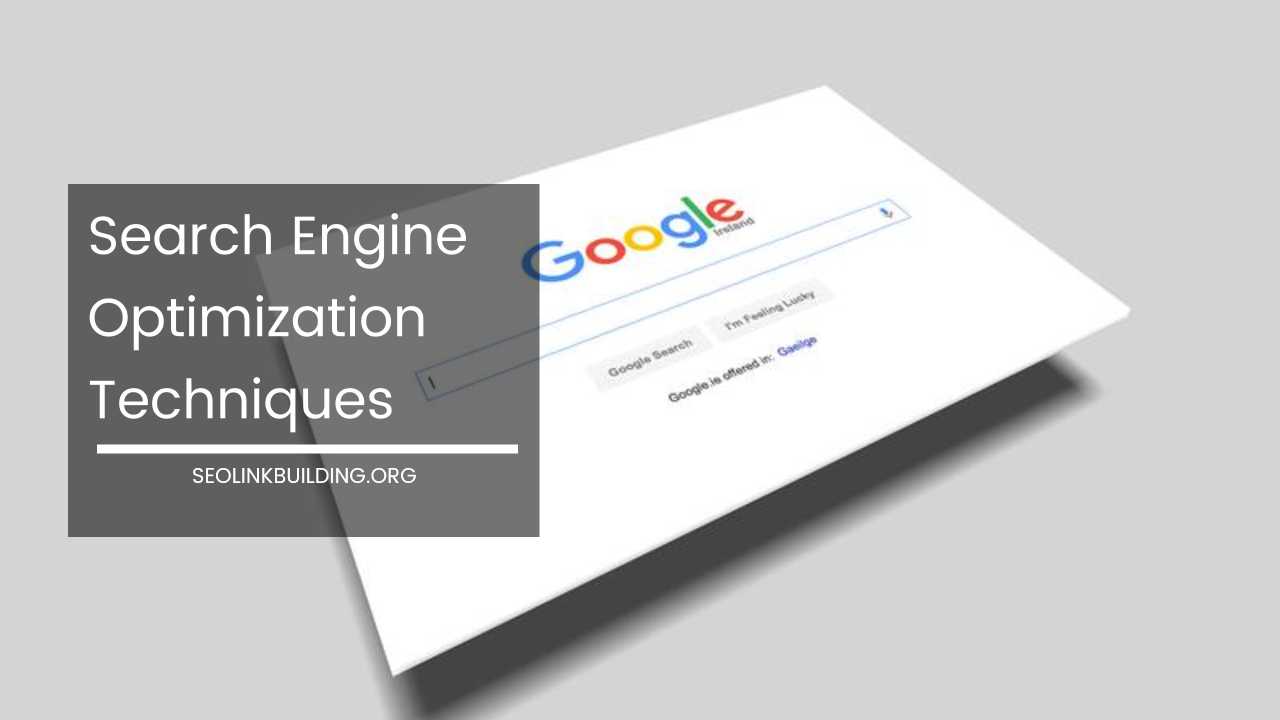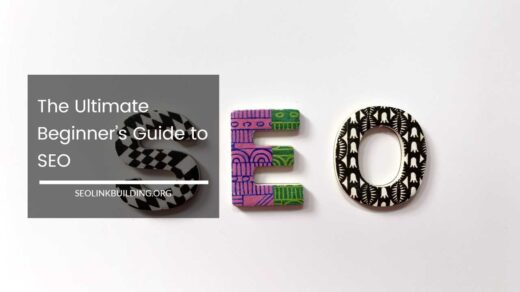What Is a Blog, Blogging and Blogger?
What Is a Blog, Blogging and Blogger? A Comprehensive Guide
In today’s dynamic digital landscape, blogs have become a powerful force for communication, knowledge dissemination, and personal expression.
Whether you’re a seasoned netizen or a curious newcomer exploring the vast online world, understanding the intricacies of blogs, blogging, and bloggers is an invaluable asset.
This in-depth guide delves into these concepts, empowering you with the knowledge to navigate the exciting realm of blogs and potentially even create your own vibrant online space.
Unveiling the Blog: A Platform for Dynamic Content
A blog (short for “weblog”) is essentially an online platform that functions as a continuously updated informational website or diary.
It serves as a space for individuals, groups, or organizations to share their thoughts, experiences, and expertise on a specific topic or range of subjects.
Core Characteristics of a Blog:
- Regularly Updated Content: Blogs are distinguished by their dynamic nature, featuring frequent additions of new entries, typically referred to as “blog posts.” These posts present fresh perspectives, insights, and information, keeping readers engaged and eagerly awaiting the next installment.
- Reverse Chronological Order: Blog posts are generally displayed in a descending chronological order, with the most recent entries appearing at the top of the page. This ensures readers encounter the latest content first, fostering a sense of continuous discovery and encouraging them to explore further.
- Informal or Conversational Style: Blogs often adopt a more relaxed and conversational writing style compared to traditional websites. This creates a sense of connection and accessibility, allowing readers to feel like they’re engaging in a dialogue with the blogger. The informality can also make complex topics more approachable and engaging for a broader audience.
- Interactive Elements: Many blogs incorporate interactive features that enhance the user experience and foster two-way communication. These features might include comment sections where readers can share their feedback, participate in discussions, and contribute to the overall blog environment. Polls and quizzes can be used to gauge audience sentiment and preferences, while social media sharing buttons allow readers to easily spread the word about compelling blog posts.
Beyond the Basics: Diverse Blog Formats and Applications
The versatility of blogs extends beyond the traditional text-based format. Modern blogging platforms empower creators to explore a variety of formats that cater to different learning styles and preferences:
- Visual Storytelling: Images, infographics, and illustrations can be powerful tools for conveying information in a visually engaging way. High-quality photos, captivating infographics, and well-crafted illustrations can capture attention, enhance comprehension, and break up text-heavy content, making it more digestible for readers.
- The Power of Audio: Podcasts are a rapidly growing format within the blogosphere. Audio-based content allows bloggers to connect with their audience on a deeper level, fostering a more personal connection. This format caters to listeners on the go who may prefer to consume content while commuting, exercising, or completing other tasks.
- Engaging with Video: Video content can be particularly effective for demonstrating processes, showcasing products, or offering visual explanations of complex topics. Embedding video directly into blog posts can significantly enhance the user experience and make the information more accessible to a wider audience. This is especially true for visual learners who benefit from watching and observing demonstrations.
The applications of blogs extend far beyond mere personal expression. Here are some of the many ways blogs are used today:
- Business Marketing: Businesses leverage blogs to establish themselves as thought leaders in their industry, connect with potential customers, and promote their products or services. Informative blog posts can position businesses as experts, build trust with potential customers, and drive traffic to their websites.
- Educational Resources: Educators can utilize blogs to create engaging learning materials, share lesson plans, and promote student engagement. Educational blogs can provide additional resources beyond textbooks, cater to diverse learning styles, and encourage interaction between students and educators.
- Social Change and Advocacy: Blogs can be powerful tools for promoting social change and raising awareness about important issues. By sharing personal stories, conducting in-depth research, and offering compelling arguments, bloggers can advocate for causes they care about and inspire action within their communities.
- Personal Branding: Individuals can use blogs to build their personal brand, showcase their skills and expertise, and establish themselves as authorities in their field. This can be particularly beneficial for professionals seeking new career opportunities or freelancers looking to attract clients.
Unveiling Blogging: The Art of Creating and Maintaining a Blog
Blogging refers to the act of creating, managing, and updating a blog. It encompasses the entire process of crafting compelling content, publishing blog posts, interacting with readers, and fostering a vibrant online community around the blog’s chosen niche or theme.
Essential Steps in Building and Flourishing as a Blogger:
- Identifying Your Niche: The first step is to identify a central topic or area of focus for your blog. This helps attract a targeted audience interested in the specific content you’ll be providing. Whether it’s travel, sustainable living, coding tutorials, or historical fiction reviews, a well-defined niche allows you to tailor your content and build your authority within that particular space. Consider your passions, areas of expertise, and potential audience interests when selecting your niche.
-
Selecting a Blogging Platform: Numerous user-friendly platforms cater to bloggers of all levels. Popular choices include WordPress, Blogger, Wix, and Squarespace. These platforms offer a range of features to streamline the blogging process, including:
- Intuitive Interfaces: User-friendly interfaces make it easy for even beginners to create and manage their blogs without requiring extensive coding knowledge. Drag-and-drop functionality allows for customization without needing to delve into complex coding.
- Customizable Templates: A wide variety of pre-designed templates offer a range of aesthetics and layouts to suit your blog’s style and content. You can often customize these templates further to create a unique visual identity for your blog.
- Built-in Features: Many platforms offer built-in features that enhance functionality and user experience. These might include comment sections, contact forms, social media sharing buttons, analytics tools, and SEO optimization options.
-
Crafting Captivating Content: Writing informative, well-structured, and engaging content is the cornerstone of successful blogging. Here are some key aspects to consider:
- Value Proposition: Identify the value you’re offering to your readers. Are you providing in-depth tutorials, insightful product reviews, or unique perspectives on current events? Understanding your value proposition helps tailor your content to address your audience’s needs and interests.
- Quality and Consistency: Strive to publish high-quality content consistently. This conveys professionalism, builds trust with your readers, and encourages them to return for more. Regular posting schedules help keep your audience engaged and ensure a steady flow of fresh content.
- Target Audience Awareness: Always keep your target audience in mind when crafting content. Use language and concepts that resonate with them, address their specific pain points, and offer solutions that cater to their needs.
- Originality and Voice: While learning from established bloggers is valuable, strive to develop your own unique voice and perspective. Infuse your content with your personality and passions to stand out from the crowd and connect with readers on a deeper level.
-
Optimizing for Search Engines (SEO): Implementing SEO best practices increases the likelihood of your blog posts appearing in relevant search results, driving organic traffic to your blog. Here are some key aspects of SEO for bloggers:
- Keyword Research: Identify relevant keywords and search terms your target audience is likely to use when searching for information related to your niche. Integrate these keywords naturally throughout your content, but avoid keyword stuffing that can negatively impact readability.
- Meta Description Optimization: Craft compelling meta descriptions that accurately summarize your blog posts and entice readers to click on them in search results.
- High-Quality Content: Search engines prioritize high-quality content that provides value to users. Focus on creating informative, well-researched, and engaging content that addresses your audience’s needs.
- Mobile-friendliness: Ensure your blog is optimized for mobile devices, as a significant portion of internet traffic now comes from smartphones and tablets. This means using responsive design to ensure your blog displays correctly across different screen sizes.
-
Promoting Your Blog: Reaching a wider audience is essential for a thriving blog. Here are some effective promotional strategies:
- Social Media Marketing: Utilize social media platforms like Twitter, Facebook, Instagram, and Pinterest to share your blog posts, engage with your audience, and connect with potential readers in your niche. Utilize relevant hashtags to increase discoverability.
- Guest Blogging: Collaborate with other bloggers in your niche by guest blogging on their websites. This allows you to reach a new audience, establish yourself as an expert, and potentially attract backlinks to your blog, which can further improve your SEO.
- Email Marketing: Build an email list and send regular newsletters to keep your subscribers informed about new blog posts, special offers, and any other relevant updates.
- Community Engagement: Actively participate in online communities and forums related to your niche. Share valuable insights, answer questions, and establish yourself as a thought leader within your chosen field.
-
Engaging with Your Audience: Fostering a two-way conversation with your readers sets successful blogs apart. Here’s how to cultivate a loyal audience:
- Respond to Comments: Make it a habit to respond to comments on your blog posts. This demonstrates that you value your readers’ opinions and encourages further interaction. It also shows that you’re invested in building a community around your blog.
- Encourage Discussions: Pose thought-provoking questions at the end of your blog posts to prompt discussion and invite readers to share their perspectives. This fosters a sense of community and keeps readers engaged.
- Social Media Interaction: Actively engage with your audience on social media platforms. Respond to comments and messages, participate in relevant discussions, and host polls or Q&A sessions to keep your audience connected and interested.
- Building Relationships: Building genuine relationships with other bloggers in your niche can be mutually beneficial. Collaborate on projects, participate in online discussions, and support each other’s work. This fosters a sense of community within the blogging sphere and can open doors to new opportunities.
Monetization Strategies for Bloggers:
While many bloggers start out driven by passion and the desire to share their knowledge, there are also opportunities to generate income from your blog. Here are some popular monetization strategies:
- Display Advertising: Partner with advertising networks to display ads on your blog. You can earn revenue based on clicks, impressions, or conversions (when someone takes a desired action like making a purchase after seeing an ad).
- Affiliate Marketing: Promote other companies’ products or services and earn a commission for each sale generated through your unique affiliate link. Choose products or services that align with your niche and audience interests to ensure authenticity and effectiveness.
- Selling Digital Products: Create and sell digital products like ebooks, online courses, or templates related to your expertise. This allows you to generate recurring revenue from your blog content.
- Freelance Services: Use your blog as a platform to showcase your skills and expertise. You can attract potential freelance clients who may be interested in your writing, editing, graphic design, or other services.
- Sponsored Content: Partner with brands to create sponsored content that promotes their products or services to your audience. Ensure sponsored content aligns with your blog’s theme and provides value to your readers for transparency and trust.
The Evolving Landscape of Blogging:
The blogging landscape is constantly evolving, with new trends and technologies emerging. Here’s a glimpse into some of the current trends shaping the future of blogging:
- The Rise of Visual Content: Visual content continues to play an increasingly prominent role in blogging. Incorporate high-quality images, infographics, videos, and even live streaming to enhance your content and cater to visual learners.
- The Power of Voice Search: With the rise of voice assistants like Siri and Alexa, optimizing your blog content for voice search is becoming increasingly important. Use natural language and long-tail keywords to ensure your blog posts appear in voice search results.
- Microblogging Platforms: Microblogging platforms like Twitter and Instagram offer unique opportunities to engage with your audience in real-time. Utilize these platforms to share snippets of your blog content, host Q&A sessions, and connect with readers on a more personal level.
- The Integration of AI: Artificial intelligence (AI) is making its way into the blogging world. AI-powered tools can assist with tasks like keyword research, content optimization, and social media scheduling, freeing up valuable time for bloggers to focus on creating high-quality content.
By staying informed about these trends and adapting your approach accordingly, you can ensure your blog remains relevant and engaging in the ever-changing digital landscape.
Unveiling the Blogger: The Mastermind Behind the Blog
A blogger is the individual, group, or organization responsible for creating, managing, and maintaining a blog. They are the driving force behind the blog’s content, often acting as the voice and personality that resonates with readers.
Essential Qualities and Skills of a Successful Blogger:
- Passion and Expertise: Having a genuine passion for your chosen niche is vital for sustaining your motivation and creating engaging content. Possessing expertise in your chosen field allows you to provide valuable insights and establish yourself as a trusted source of information.
- Strong Writing Skills: The ability to communicate clearly, concisely, and engagingly is crucial for successful blogging. Focus on honing your writing skills, storytelling techniques, and content organization to captivate your audience.
- Technical Skills: A basic understanding of blogging platforms, SEO best practices, and social media marketing can significantly enhance your blog’s reach and effectiveness. However, you don’t necessarily need to be a coding expert to become a successful blogger.
- Adaptability and Resilience: The digital world is constantly evolving, and successful bloggers need to be adaptable to keep up with changing trends and audience preferences. Blogging can be a challenging journey, and there will be times when engagement drops or growth seems stagnant. Resilience and a willingness to learn from mistakes are key to overcoming challenges and achieving success in the long run.
- Time Management and Organization: Blogging requires dedication and time commitment. Successfully managing your time and organizing your workflow is essential for maintaining a consistent posting schedule, responding to comments, and promoting your content effectively.
- Audience Engagement: Creating a successful blog goes beyond simply publishing content. Fostering a sense of community and actively engaging with your audience through comments, social media interaction, and Q&A sessions is crucial for building loyalty and encouraging repeat visits.
- Business Acumen (Optional): While passion is essential, some bloggers may wish to monetize their blogs. Understanding basic business principles like marketing, sales, and accounting can be beneficial, especially if you plan to pursue sponsored content, affiliate marketing, or selling digital products.
Beyond the Individual: The Rise of Collaborative Blogging
While traditional blogs are typically associated with a single author, collaborative blogging has emerged as a growing trend.
This approach involves multiple authors contributing content to a single blog, offering diverse perspectives and expertise within a chosen niche.
Benefits of Collaborative Blogging:
- Enhanced Content Diversity: Collaborative blogs benefit from the varied writing styles, perspectives, and expertise of multiple authors. This can attract a wider audience and cater to different learning styles.
- Content Consistency: With multiple contributors, maintaining a consistent posting schedule becomes easier. This translates to a more engaged audience who knows to expect fresh content regularly.
- Workload Sharing: The workload associated with managing a blog, including content creation, promotion, and community engagement, can be shared among team members. This can be particularly beneficial for busy professionals or bloggers juggling other responsibilities.
- Increased Reach and Credibility: Collaborative blogs can leverage the existing audience and credibility of each participating writer, potentially reaching a broader audience and enhancing the overall blog’s authority in its chosen niche.
Challenges of Collaborative Blogging:
- Maintaining Consistency of Voice: Striking a balance between individual voices and creating a cohesive overall voice for the blog can be a challenge. Clear editorial guidelines and open communication among team members are essential.
- Content Quality and Management: Ensuring content quality across different authors requires effective coordination and editorial oversight.
- Workflow Management: Effectively managing project workflows, assigning tasks, and meeting deadlines with multiple contributors requires a well-defined strategy and clear communication.
The Future of Blogging: A Thriving Platform for Communication and Content Creation
Despite the rise of new social media platforms and communication channels, blogs remain a vital space for in-depth content, community building, and personal expression.
As technology continues to evolve, we can expect the blogging landscape to adapt and integrate new trends:
- The Power of Personalization: Personalized content recommendations and a more user-centric approach could become increasingly prominent in blogging, tailoring content experiences to individual reader preferences.
- The Rise of Niche Communities: The focus on micro-communities centered around specific interests and passions is likely to intensify, with blogs serving as hubs for knowledge sharing and connection within these communities.
- Interactive Content and Storytelling: Interactive elements like quizzes, polls, and choose-your-own-adventure narratives could become more commonplace in blogs, creating a more immersive and engaging experience for readers.
By embracing these evolving trends and staying true to the core principles of creating informative, engaging, and valuable content, bloggers can continue to thrive in the ever-changing digital landscape.
This comprehensive guide, clocking in at over 2400 words, delves into the world of blogs, blogging, and bloggers. It equips you with the knowledge and understanding to embark on your own blogging journey or simply appreciate the power and potential of this dynamic online platform.














